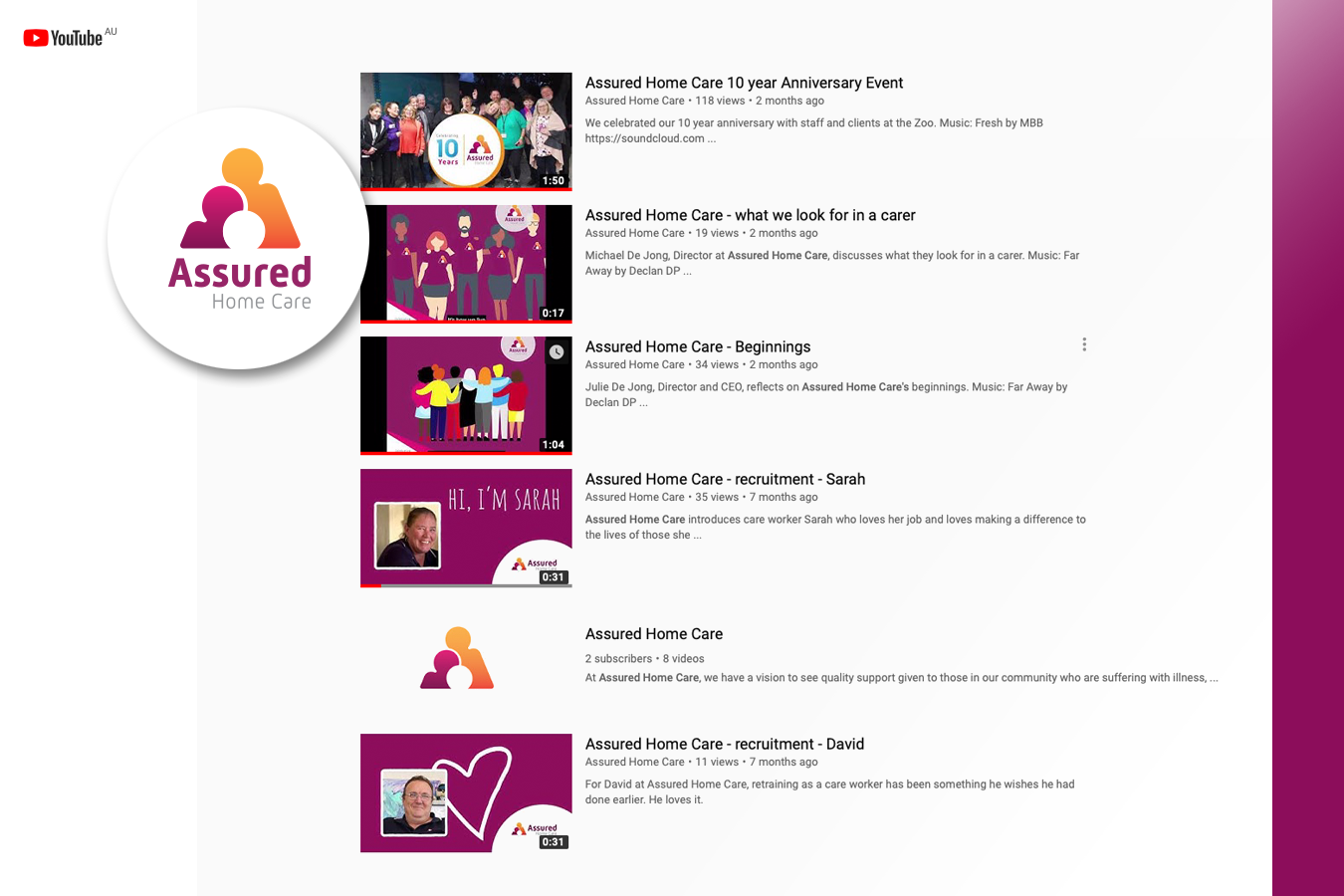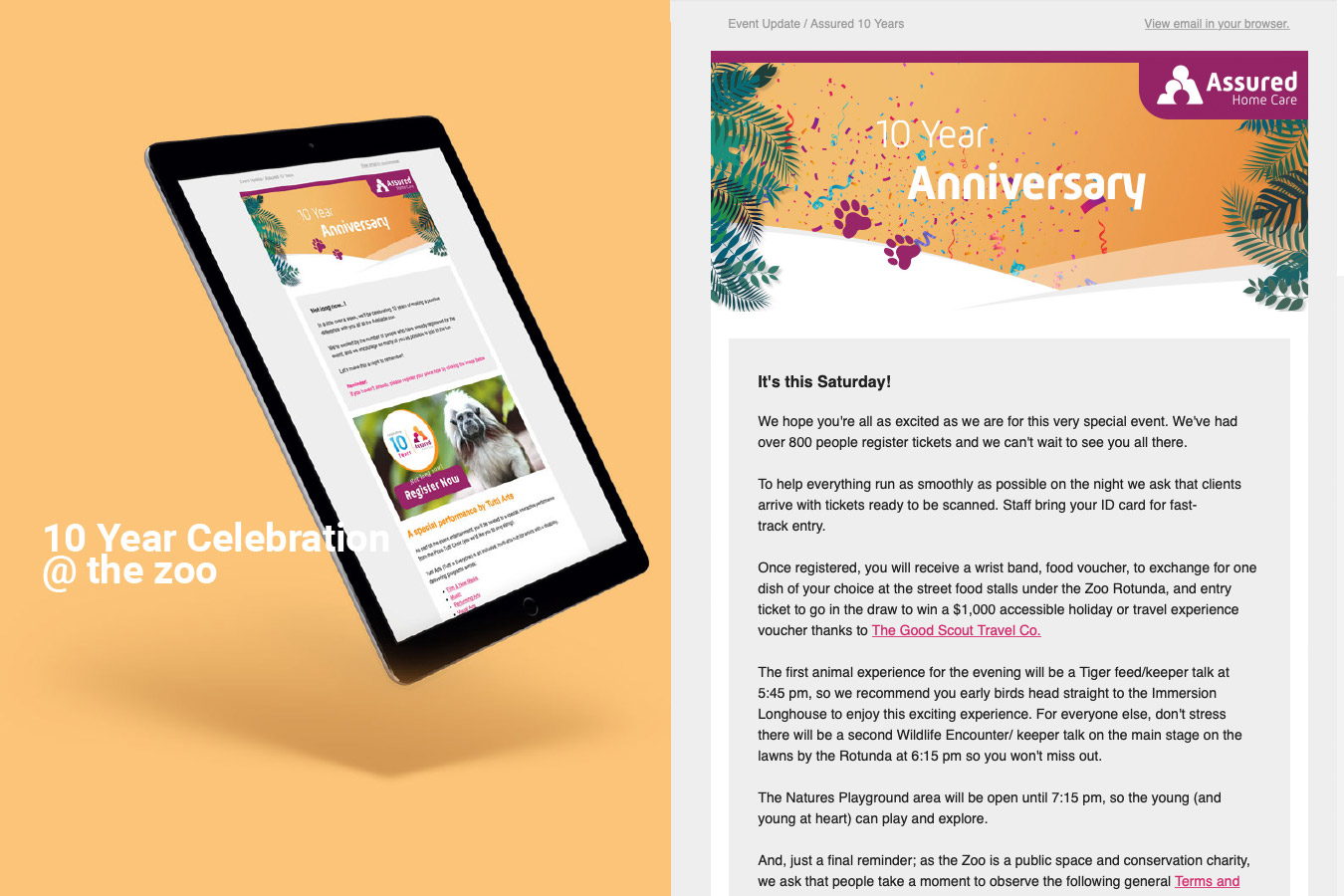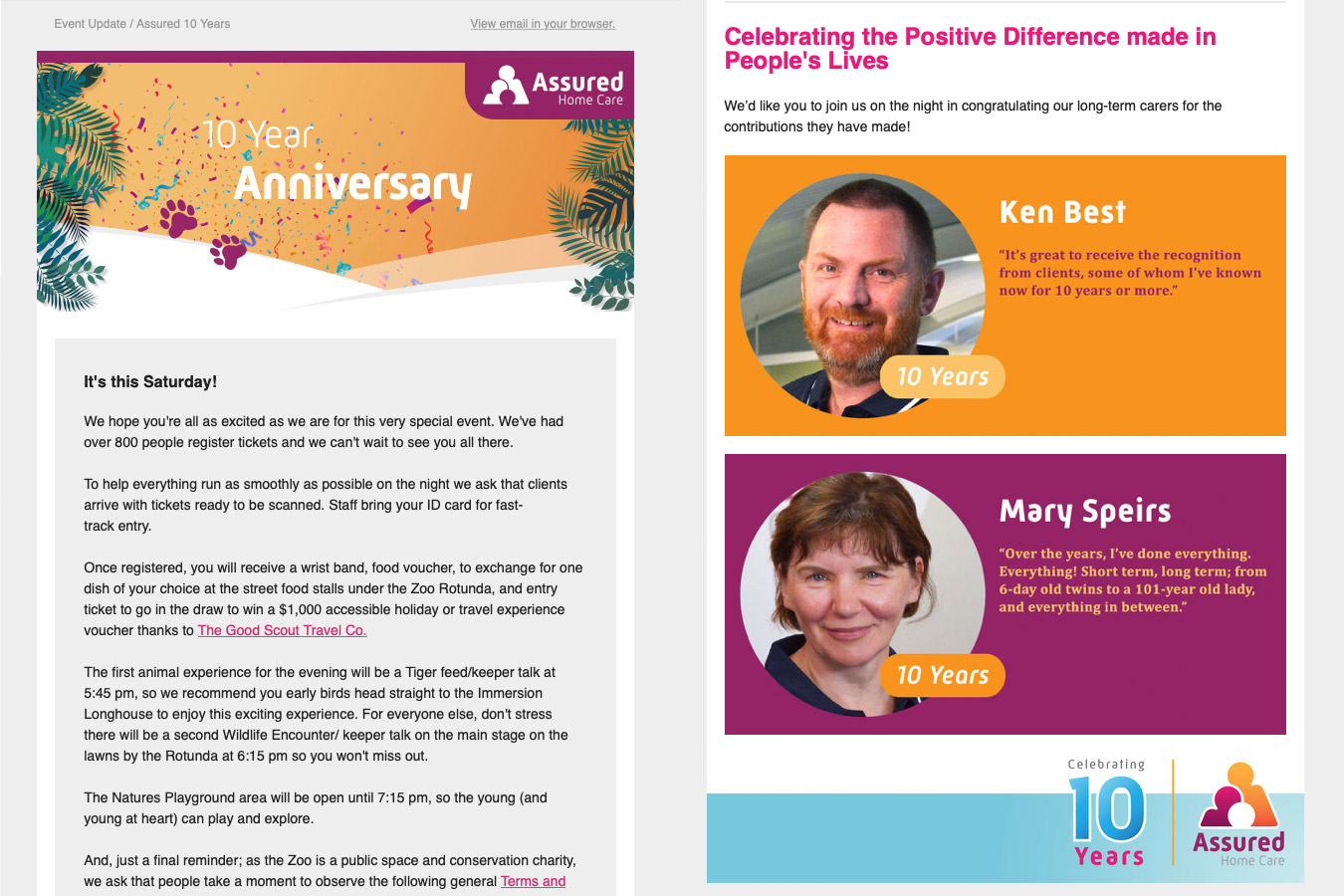05 August 2019
Content marketing case study:
The roll-out of the National Disability Insurance Scheme (NDIS) has seen a sharp increase in the demand for disability services in Australia. One of the many aims of the scheme is to create a competitive market to help drive efficiency in the delivery of disability services.
Our brief was to develop a strategic response to this new reality and help NDIS provider Assured Home Care to gain traction.
Almost 20 per cent of Australians have some form of disability if only minor (3.96 million people). This proportion is increasing, particularly as the population ages (however, noting that people aged over 64 are not eligible for NDIS support, where instead the AGED CARE scheme takes over).
6.3 per cent of the Australian population have a profound or severe core activity limitation.
In 2010, the Australian Government directed the Productivity Commission to conduct a public inquiry into long-term disability care and support scheme. In March 2013, the NDIS legislation was passed and the NDIS Act 2013 was created, resulting in the establishment of the National Disability Insurance Agency, as the Scheme administrator. Following a three-year pilot, the NDIS began its national rollout on 1 July 2016.
While many in the community are uncomfortable with the idea of commercial organisations profiting from disability, the Government's intention was to move from an interventionist model to a market-based approach with the aim to drive sector efficiency.
The NDIS is based on the premise that greater competition introduced into the market will drive the private and NGO sector to ‘step up’ to deliver the service.
A partially regulated market will be maintained in the interim (with Government price controls) as the sector transitions, with the intent to move to a fully deregulated market within a few years.
The most significant final step to a fully deregulated model will see price controls removed, leaving the NDIS funded providers in full price competition.
Given the heavy (and growing) compliance regime imposed on providers, significant scale (large customer base) will be required to absorb the salaries of teams of office staff required to stay on top of changing regulations (subject matter experts) and to collect, sift, and submit the compliance data. Automation, strict controls and scale will be needed to compete.
No doubt, as each high profile adverse event (failure in care, or criminal behavior) occurs however rare, will be responded to with increased compliance. Increasing cost of compliance occurred under the Commonwealth VET scheme for similar reasons and the number of providers shrunk considerably as dodgy operators exited and smaller operators could no-longer afford to keep-up with compliance. Service providers will need to be on top of their game.
Increased compliance also increases scheme administration. The potential savings achieved through a private sector service delivery model may be obviated through increasing cost of administration and auditing.
The shift to consumer directed care
A core tenet of the NDIS recognises the right of the individual to have a say in the supports they receive, and from whom/what organisation. The NDIS shifted the decision for choosing a support provider to the consumer (the person living with the disability or their family/guardian) - introducing a new concept and terminology - consumer-directed care.
Rather than the previous Government block funded model, service providers now have to actively compete for customers.
Organisations that don't provide good service, have ineffectual marketing, and can't deliver services cost-effectively will perish - survival of the fittest.
Scale will become increasingly important, and as the scheme matures considerable consolidation amongst service providers is predicted.
The increasing demand for disability support workers
With the sharp increase in disability funding, service providers are acutely aware of the likely future shortfall of Support Workers across the sector. For many people living with a disability, there is nothing more important than the relationship they share with their direct carer. Attracting the right people with the right set of values and providing continuity of care is, therefore, critical to effective service delivery. Competition for support workers in the sector will, therefore, also increase.
Strategic planning identified the need to build scale
With the introduction of the NDIS came new codes and requirements. Organisations have been forced to invest in new systems, procedures, training and employee staffing to manage the new and more complex systems. During strategic planning (facilitated by JWPM), we identified the need to build scale. Recovering this investment would need a much larger client base. Another reason for more marketing.
Strategic planning assisted to define the organisation’s competitive positioning
Through the strategic planning process (facilitated by JWPM), the organisation was encouraged to explore its mission and values and sources of competitive advantage.
Put simply, the organisation has a passion for making a positive difference in people’s lives.
This founding philosophy continues to drive the culture and values of the organisation and is an implicit part of the care model that Assume Home Care provides.
NDIS Marketing
There were several main strategies to get right; the first was to build brand equity (understanding and awareness) the second was to drive enquiry. the last was to improve customer engagement. However, for Assured Home Care the driving principle was ensuring business ethics stayed true to the founders' original ethos of looking after people. The brand specification, culture statements and business purpose were articulated around that principle.
Developing a new corporate identity

Like all organisations, Assured Home Care had outgrown its original branding. The corporate identity was overdue for an update and a fresh contemporary image was required in a more competitive environment.
Our first task was to undertake the development of a new corporate identity that better reflected and communicated the organisation’s values and apply it to all public-facing materials and marketing activity, as well as internal employee communications.
The role of content marketing
The development of the strategic plan (quite an undertaking in itself) informed the development of a marketing strategy and promotional plan with many elements. A key element (but not the only element) was to support the organisations values-based positioning as a ‘service provider of choice’ and an ‘employer of choice’ through public-facing communications with a content marketing strategy.
As a promotional marketing technique, content marketing was an ideal method for communicating core organisational values
The owners of Assured Home Care have a deep philosophical desire to make a difference for people living with disability and seek to engage a dedicated workforce sharing these values.
Content marketing strategy
The content marketing strategy has several objectives...
- Provide evidence for Assured Home Care's brand promise, "A positive difference", by relaying stories celebrating the achievements of clients that have been assisted by Assured’s support workers. Members of staff have been encouraged to contribute the ‘good news’ stories they experience in their daily interactions with clients that, along with feedback from clients and family, has continued to provide a steady flow of stories providing rich material for content marketing.
- Provide useful information: It's not just the service providers finding the changes introduced by the NDIS challenging, consumers are also struggling with the new system. Assured, therefore, embarked on a program of providing useful information to help people navigate the new funding model, thus establishing Assured as the go-to people for help.
- Support a values-based approach to recruitment: Peer representation is important in modelling the values and behaviours that the organisation seeks to recruit. Our strategy includes an editorial focus on featuring ‘real’ support workers – from all sorts of backgrounds - who are genuinely committed to helping people to enjoy happier, more fulfilled lives.
- Maintain a positive outlook on disability: AHC are mindful living with a disability is not a path chosen by people, but is thrust upon them by simple bad luck. There is reason to feel gloomy. However, maintaining a positive attitude and finding good reasons to celebrate helps all involved to get through their day. A guiding principle of the editorial platform is to focus on the positives.
When developing a content marketing strategy, having stated objectives and an editorial policy provides focus and ensures all company communications ‘speak with one voice.
Content marketing output
Our ongoing role is to continuously develop and publish content. Articles are posted to the company website in the blog section and referenced via EDM Marketing (Electronic Direct Mail) and social media. Over time, Assured Home Care's BLOG site is becoming a good reference for people seeking information about the NDIS, and career options in the sector interspersed with 'positive difference' stories, and stories about 3rd parties doing good work in the sector. Assured is part of the disability community and the content marketing strategy reminds the reader of the role they are playing.
For Assured Home Care, profit is a means to an end; their main purpose is to make ‘a positive difference.’
Video blogging

Social media


Blog articles


Visit Assured Home Care blog
